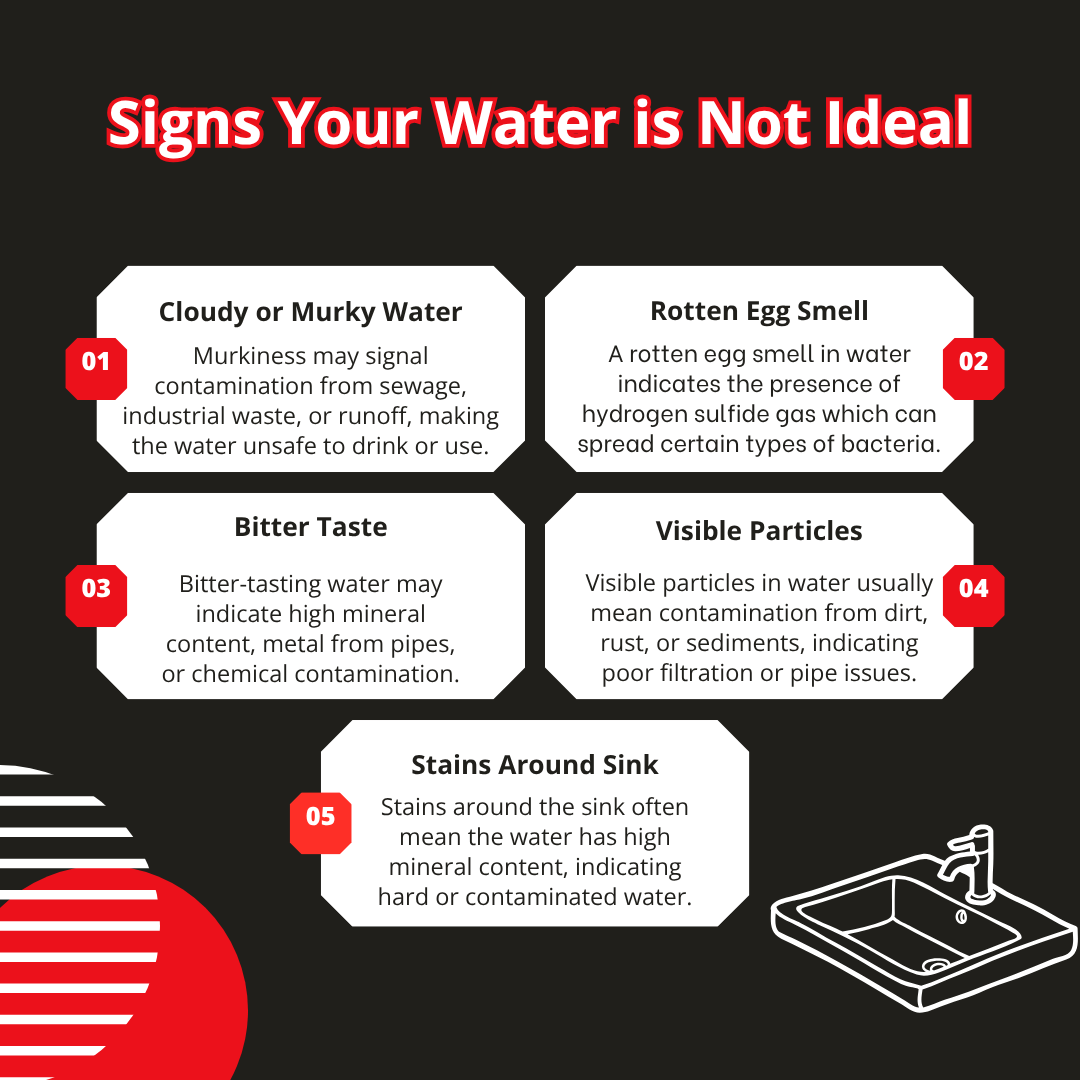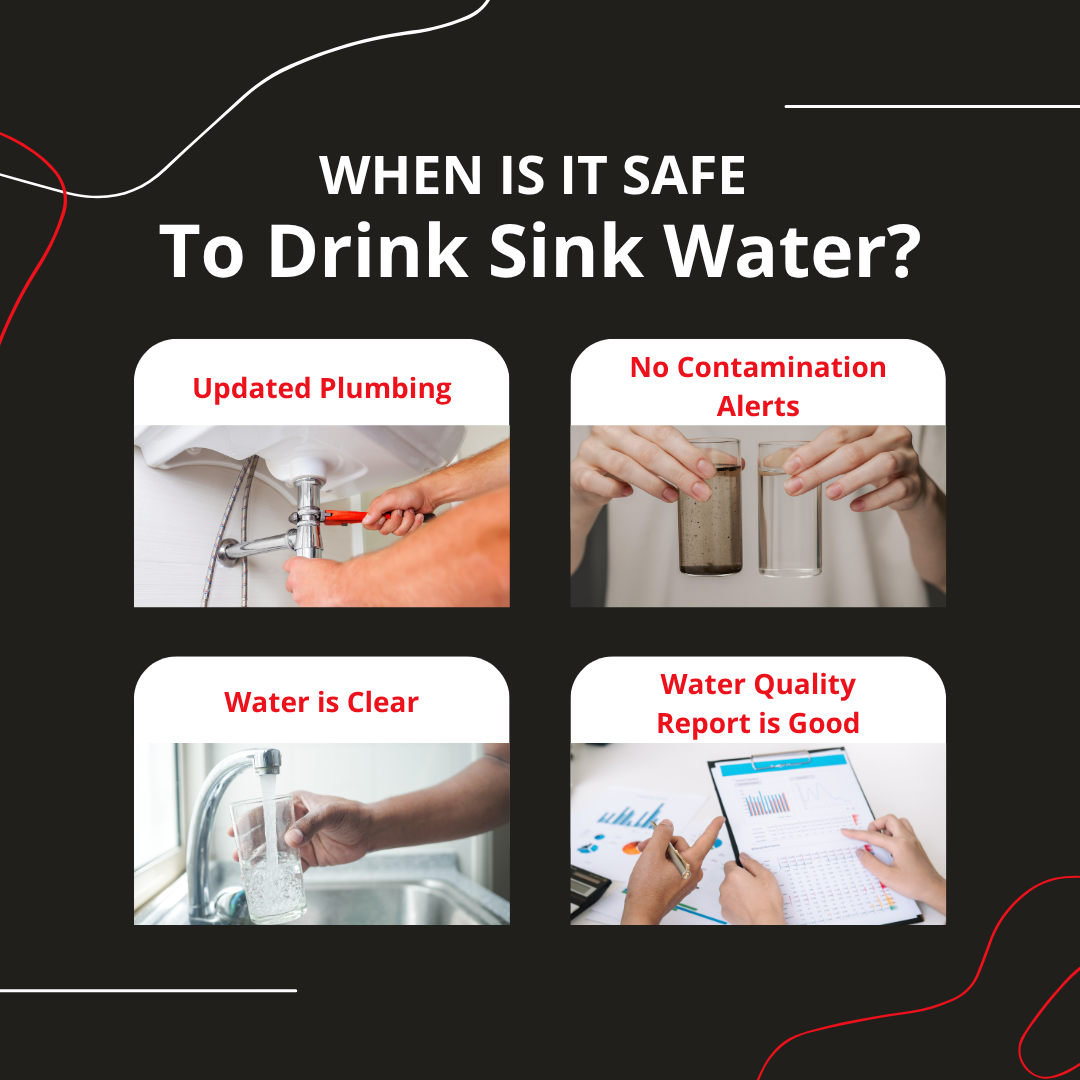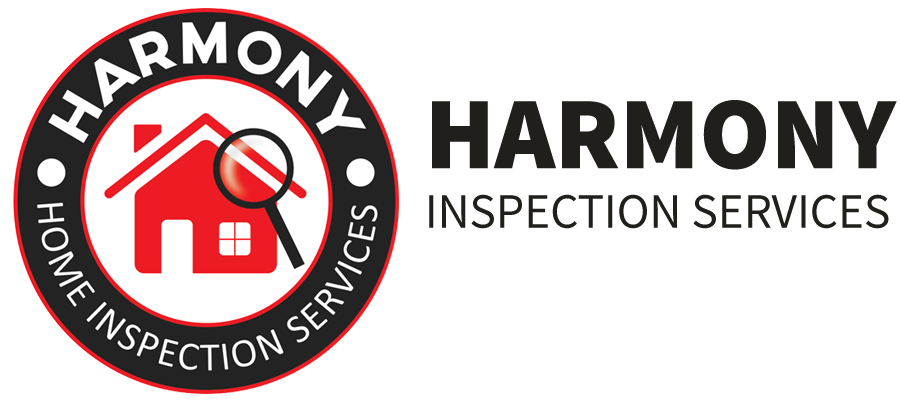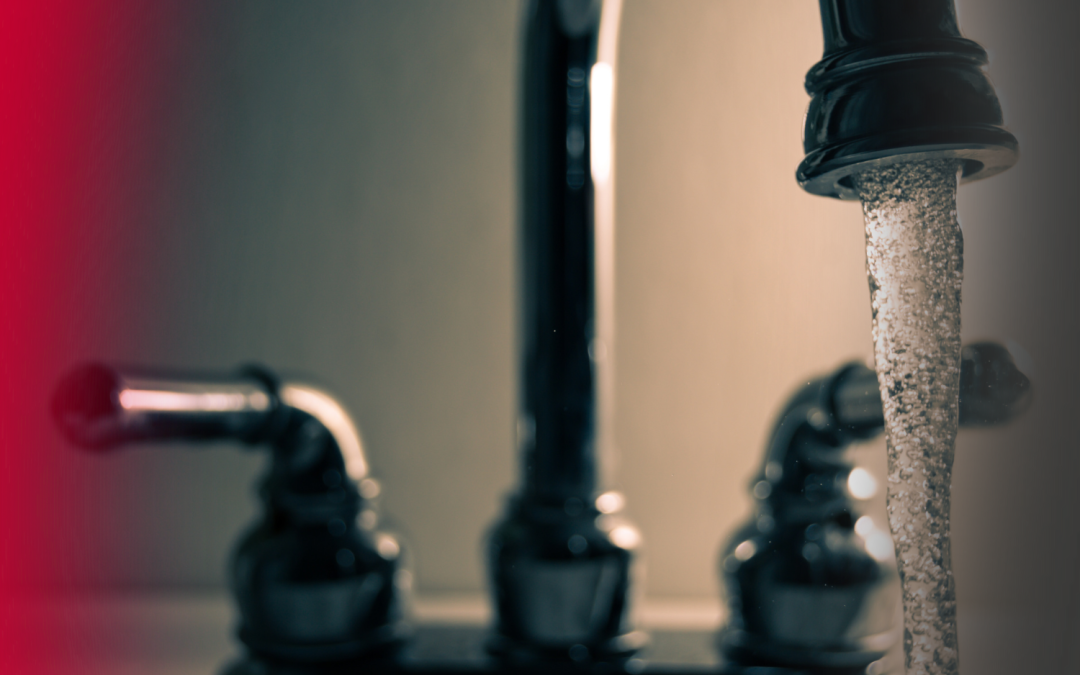If you’re wondering whether the water coming out of your sink is safe to drink, you’re not alone. This is one of the first questions many homeowners ask, especially when moving into a new house.
Clean water matters, but what comes out of the faucet isn’t always as simple as it looks.
So, is sink water safe to drink, or should you filter it? Let’s explore what’s really in your water, how to know when to trust it, and when it’s time to take extra steps.
Why It Matters
Drinking water touches everything from your health to your budget. If it tastes strange or leaves stains in your sink, it’s worth asking why. Even if your home is connected to a public water system, the safety of your water can still be affected by things inside the home, like old pipes, corroded plumbing, or water heater buildup.
Harmony Home Services does not offer water testing, but our inspectors do check water supply lines and water heaters. These systems play a major role in your home’s overall water quality, especially after years of use.
What’s Actually in Tap Water?
Sink water often comes from one of two sources: public water (city water) or private wells. In most parts of the U.S., public water is treated before reaching your home. Still, it may contain trace levels of things like:
- Chlorine (used for disinfection)
- Sediment from pipes or the ground
- Lead (from old plumbing)
- Minerals like calcium and magnesium
- Occasionally bacteria (especially with well water)
According to the EPA, more than 90% of public water systems meet federal safety standards. However, problems can still happen in individual homes based on aging plumbing, local contamination, or water heater issues.
Signs Your Sink Water Might Not Be Ideal
You don’t need to be a water expert to spot a red flag. Some signs to watch for include:
- Cloudy or murky water
- Metallic, musty, or rotten egg smell
- Bitter or earthy taste
- Rust-colored water or visible particles
- Stains around sink drains or faucet heads

These could point to plumbing corrosion, water heater buildup, or other system issues. While these don’t always mean the water is unsafe, they are good reasons to investigate further.
Note: If you use well water and haven’t had it tested recently, it’s a good idea to do so through a local certified lab.
When It Makes Sense to Use a Water Filter
Even if your water is considered “safe,” you may still prefer to filter it. Some reasons to consider a filter include:
- Your home has older pipes or fixtures
- You’re sensitive to chlorine or sediment
- You notice off-tasting or discolored water
- You have a private well and don’t test water often
- You live in an area with hard water or past contamination alerts
Types of Filters and Costs:
- Pitcher Filters: Simple and affordable. Around $20 to $50, plus cartridge refills.
- Under-Sink Filters: Hidden, direct-to-tap systems. Cost around $90 to $180.
- Whole-House Filters: Installed at the main water line. Range from $800 to $2,500, depending on your home size and system.
Each type targets different contaminants, so choose based on what you want to remove.
When It’s Safe to Drink Tap Water As-Is
Not all tap water needs filtering. In many cases, it’s safe to drink straight from the faucet, especially when:
- You’re in a home with newer plumbing and updated fixtures
- Your area has no boil notices or contamination alerts
- Water is clear, odor-free, and tastes clean
- You’ve checked your municipality’s latest water quality report
If everything looks, smells, and tastes normal, and your plumbing is in good shape, you’re likely in the clear.

What a Home Inspection Can Reveal About Water Safety
While Harmony Home Services doesn’t perform water testing, our home inspections can still help you understand your water system. During an inspection, the team will:
- Examine the condition of water supply lines
- Inspect visible plumbing for rust, corrosion, or leaks
- Check your water heater for age, performance, and sediment buildup
- Flag issues that could affect flow or quality
These checks won’t tell you exactly what’s in your water, but they can help you spot warning signs before problems grow bigger.
Should You Filter or Not?
The short answer? It depends.
If your home has old plumbing, strange smells, or cloudy water, using a filter adds peace of mind. If you’re in a new home with clean, well-maintained systems and reliable city water, you may not need one.
When in doubt, a simple pitcher filter is an easy, affordable solution. For more complex systems, talk to a plumber or water quality professional.
Simple Tips to Keep Water Systems Working Well
Even if your water is clean, these habits can help:
- Flush taps after long periods of non-use
- Clean faucet aerators regularly to remove buildup
- Check your water heater every few years
- Replace plumbing parts when they start to corrode
- Stay informed by checking your city’s annual water report
These steps not only protect your water but also your home’s plumbing and appliances.
Want Peace of Mind About Your Water-Related Systems?
If you’re concerned about what’s coming through your pipes, start with what you can see. Harmony Home Services can identify plumbing or water heater issues that affect flow, quality, and safety.
Schedule your inspection with Harmony Home Services to check your water supply lines, spot corrosion early, and make sure your systems are working as they should.
Clean water starts with a healthy home. Harmony can help you feel confident about both.

